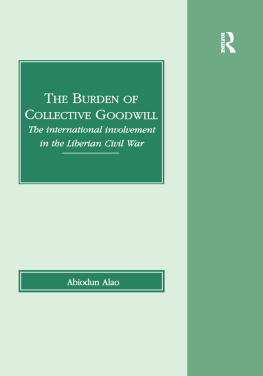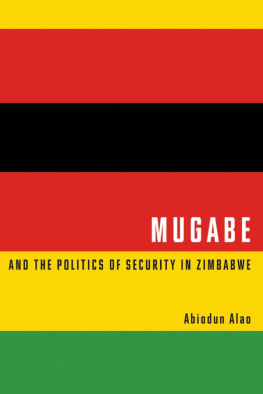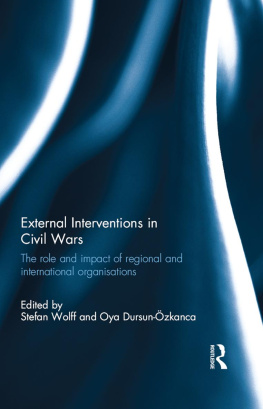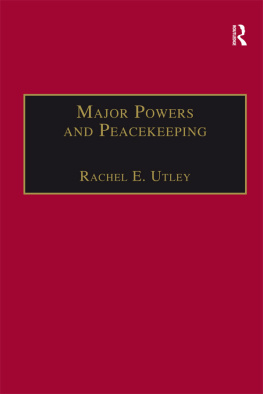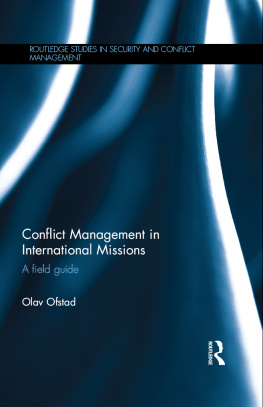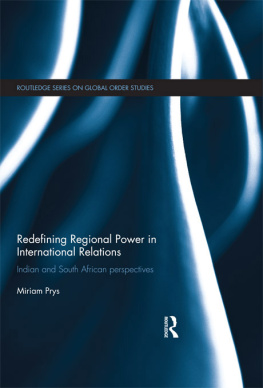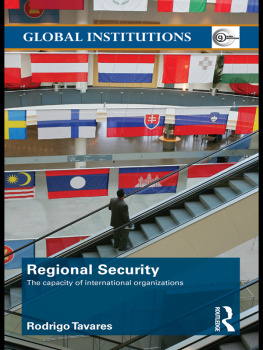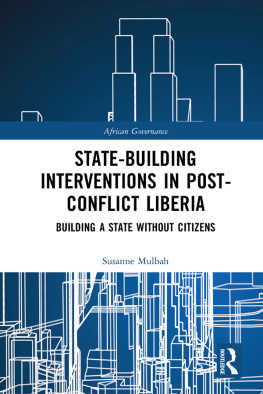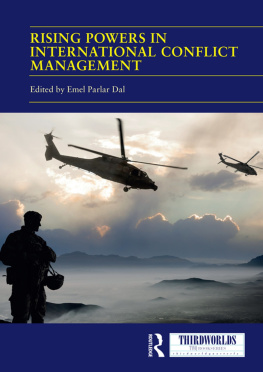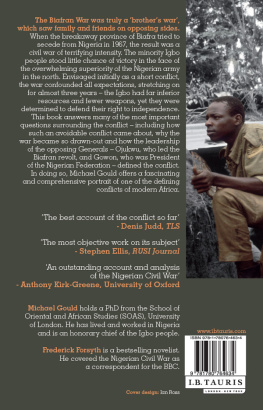THE BURDEN OF COLLECTIVE GOODWILL
This book is dedicated to my father, Mr N. O. Alao, for being there after death deprived mother from being there, and to Liberia and Liberians: a country and a people / have come to love and respect.
The Burden of Collective Goodwill
The international involvement in the Liberian Civil War
ABIODUN ALAO
Lecturer, Department of War Studies
Research Associate, Centre for Defence Studies
Kings College, University of London
First published 1998 by Ashgate Publishing
Published 2017 by Routledge
2 Park Square, Milton Park, Abingdon, Oxon OX14 4RN
711 Third Avenue, New York, NY 10017, USA
Routledge is an imprint of the Taylor & Francis Group, an informa business
Copyright Abiodun Alao 1998
All rights reserved. No part of this book may be reprinted or reproduced or utilised in any form or by any electronic, mechanical, or other means, now known or hereafter invented, including photocopying and recording, or in any information storage or retrieval system, without permission in writing from the publishers.
Notice:
Product or corporate names may be trademarks or registered trademarks, and are used only for identification and explanation without intent to infringe.
British Library Cataloguing in Publication Data
Alao, Abiodun
The burden of collective goodwill: the international
involvement in the Liberian Civil War
1. Mediation, International 2. Liberia - History - Civil War, 1989
I. Title
966.6203
Library of Congress Catalog Card Number: 97-77892
ISBN 13: 978-1-84014-318-8 (hbk)
Contents
AFL Armed Forces of Liberia
AICF Action Interationale Contre la Faim
BCC Boni County Council
BDF Bong Defence Force
CEDE Centre for Democratic Empowerment
CMO Chief Military Officer
COS Council of State
CREDO Church Related Educational Development Organisation
CRS Catholic Relief Services
ECOMOG ECOWAS Ceasefire Monitoring Group
ECOWAS Economic Community of West African States
EPI Expanded Programme for Immunization
EU European Union
FAO Food and Agricultural Organisation
ICRC International Committee of the Red Cross
IGNU Interim Government of National Unity
INN International Negotiations Network
INPFL Independent National Patriotic Front of Liberia
LCC Liberian Council of Churches
LDF Lofa Defence Force
LNTG Liberian National Transition Government
LPC Liberian Peace Council
LUDF Liberian United Defence Force
MOJA Movement for Justice in Africa
MRM Movement for the Redemption of Liberian Muslims
MSF Medicins Sans Frontieres
NGO Non-Governmental Organisation
NPFL National Patriotic Front of Liberia
NPFL-CRC Central Revolutionary Council of the National Patriotic Liberia
NRCL Nimba Redemption Council of Liberia
OAU Organisation of African Unity
PAL Progressive Alliance of Liberia
PRC Peoples Redeption Council
RUF Revolutionary United Front
SCF/UK Save the Children (United Kingdom)
ULIMO United Liberation Movement of Liberia
ULIMO K United Liberation Movement of Liberia (Kromah Faction)
ULIMO J United Liberation Movement of Liberia (Johnson Faction)
UNDHA United Nations Department of Humanitarian Affairs
UNDP United Nations Development Programme
UNHACO United Nations Humanitarian Assistance Coordination Office
UNHCR United Nations High Commission for Refugees
UNICEF United Nations Children Fund
UNOMIL United Nations Observer Missions in Liberia
UNO United Nations Organisation
USA United States of America
WFP World Food Programme
WHO World Health Organisation
For Africa, almost always at the receiving end of global vicissitudes, the end of the Cold War bestowed a new set of legacies. While the effects of colonialism and the Cold War remain in varied forms, new opportunities and challenges have also emerged. One of such challenges is the increase in the number of failed states. These are those unable to perform the basic quintessential tasks of maintaining law and order within their borders. In the words of Mohammed Ayoob, this problem, characterized by a combination of judicially sovereign but empirically non-functioning central authority may be a source of suffering and disorder well into the twenty-first century.1 The human and material consequences of state failure created a new wave of international involvement in African affairs, sometimes with enormous implications for national sovereignty.2 Issues such as peacekeeping, peace-enforcement, and other attempts at rescuing and reconstructing state disintegration, became recurring features in international politics. The number of non-governmental organizations, too, increased astronomically to cater for the devastation arising from failed nationhood. However, this goodwill has often been controversial. While some blame the intervening actors for going too far, others blame them for not going far enough. Those who speculate on the ifs of history even go as far as to wonder whether there would have been a quicker resolution of these conflicts if there had been no external intervention. While controversies may rage on, what appears beyond dispute is that, in all cases, the involvement has incurred its own burden.
Liberia, Africas oldest independent republic, entered the lexicon of human tragedy with the collapse of its central authority in 1989. With up to 150 000 dead and up to a million people displaced in its civil war, the country, along with nations like Rwanda and Somalia, became a symbol of negative reference. Another Liberia, another Somalia or another Rwanda was what every nation wanted to avoid. The regional implications of the Liberian conflict, too, were profound. Apart from creating refugees for neighbouring states, it added impetus to the war that had been brewing for more than a decade in neighbouring Sierra Leone. In the Gambia, the Liberian war also had a distinct bearing on the military overthrow of its 27 year-old civil rule, and, towards the end of the war, there were allegations of a further Liberian connection in yet another bid to topple the Gambian military government.
The Liberian war evoked a string of paradoxical epithets: it was an internal war with international underpinning; an economic war without respect for economic principles; a personality war by people of conflicting individual personalities; a war against corruption but one that equally became corrupted; a war with its roots in the Cold War era but with consequences in the post-Cold War period; an ideological war by actors of blurred ideological perception; and an ethnic war often without intra-ethnic cohesion. The complex and interwoven ramifications of the war inevitably affected the nature of the international attempts at its resolution. The regional economic organization (ECOWAS) launched the most extensive regional response to a civil conflict in Africa. The United Nations joined ECOWAS in what was to become the first joint peacekeeping mission by the UN and a regional organization anywhere in the world. Several non-governmental organizations found their way into the country. The United States, with long standing historical links with Liberia and some western European countries also stretched forth their hands of goodwill.

